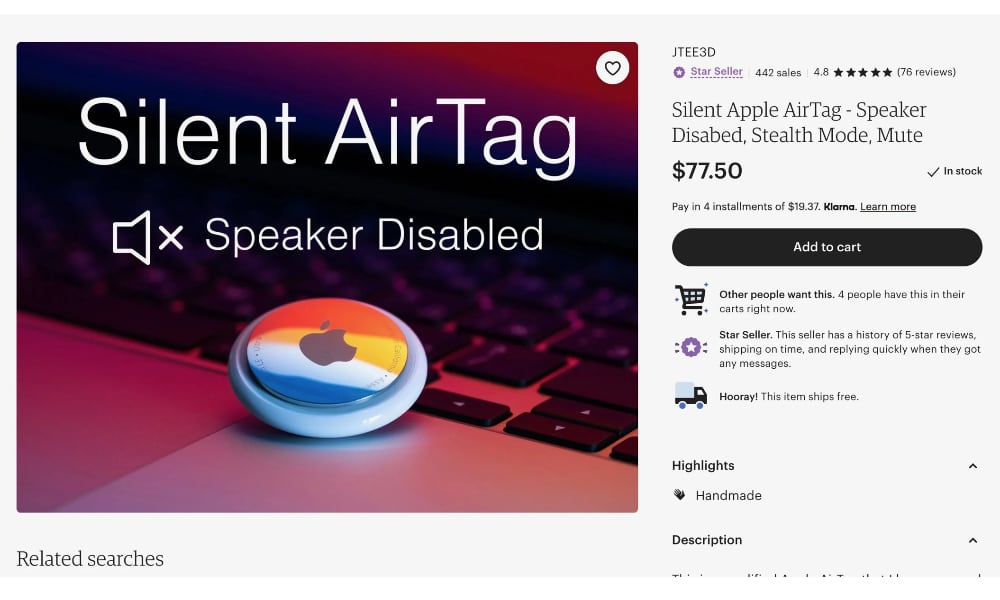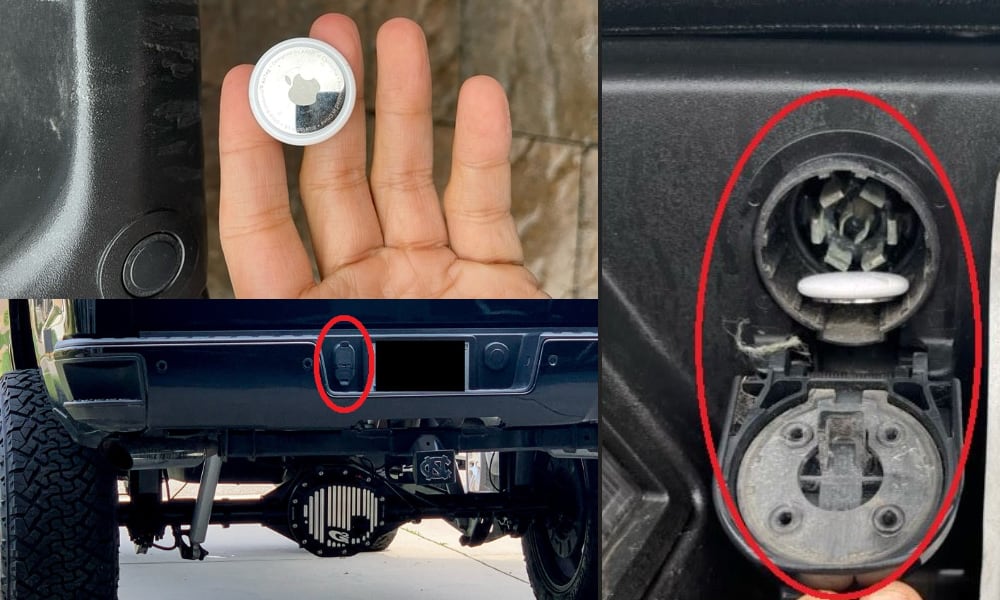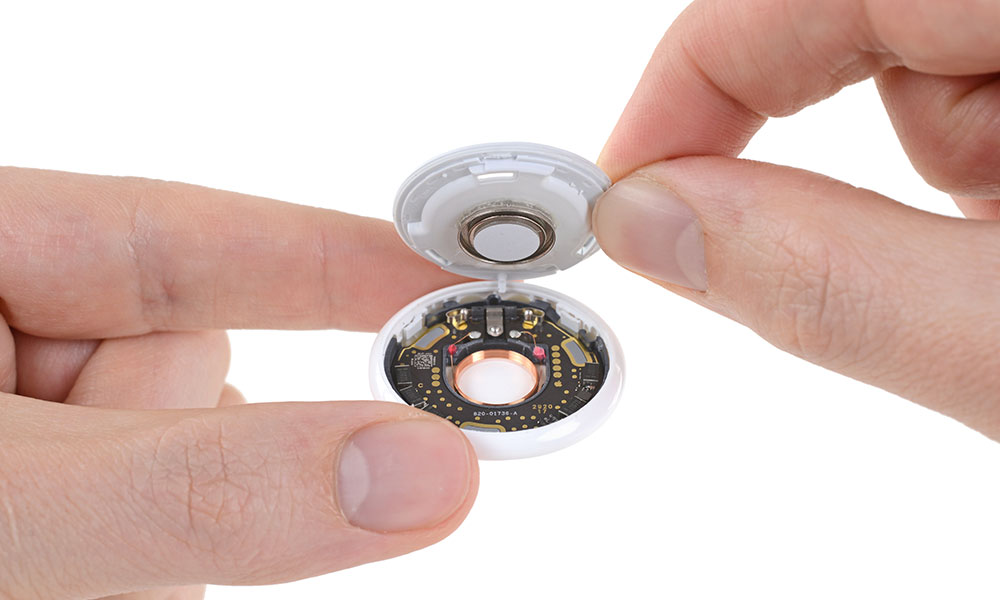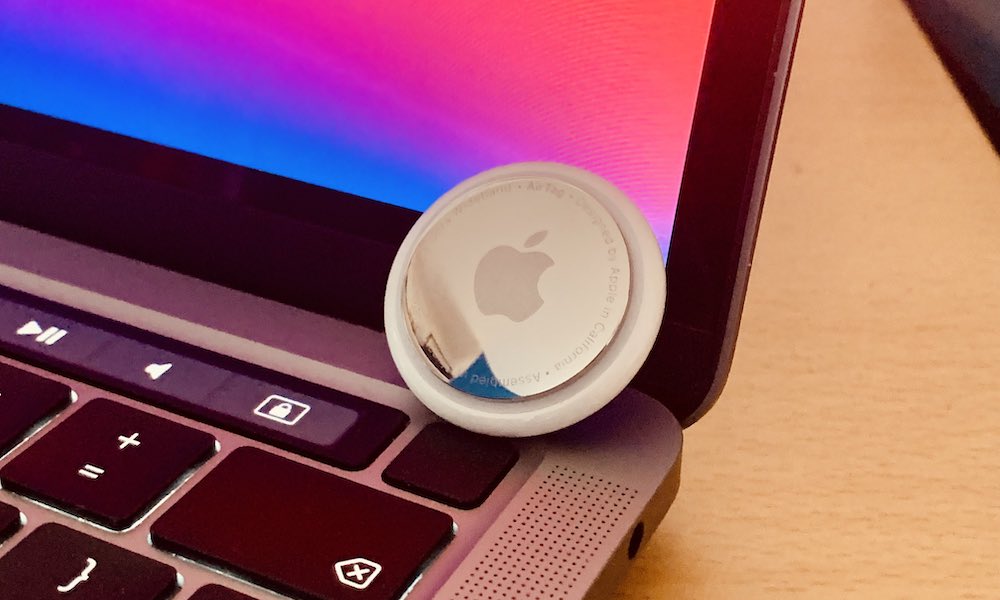PSA ‘Silent AirTags’ Are Appearing on eBay and Etsy | Are They Dangerous?
 Credit: Nikita Ognev / Unsplash
Credit: Nikita Ognev / Unsplash
Toggle Dark Mode
Some enterprising entrepreneurs appear to be trying to capitalize on selling modified versions of Apple’s AirTags that have their internal speakers disabled, and while they claim these AirTags aren’t intended to be used for stalking or other nefarious purposes, many aren’t convinced.
The listings were first highlighted by PCMag, which found at least one selling for as much as $77.50 on Etsy. That’s quite a markup from the AirTag’s normal $29 selling price, especially for a modification that’s not all that difficult to do on your own.
The Etsy seller, who goes by the handle JTEE3D, told PCMag that the Silent AirTag was intended to “cater to the several requests” from buyers who had shopped for the seller’s other, more popular AirTag product: a modified slim version of the AirTag designed to “unobtrusively fit inside a purse or wallet.”
A similar listing for a Silent AirTag on eBay advertised it as designed to keep it from “beeping when away from you, e.g., if left in a car or bike or with a family member.” That listing also adds that it “reduces chance of a thief being notified of its hidden location.”
Are Silent AirTags Really a Danger?
While the audible alert feature built into an AirTag is definitely an important deterrent against stalking, it’s also important to understand that it’s far from foolproof to begin with.
Firstly, it really is pretty trivial for just about anybody to modify an AirTag to disable the internal speaker, so the appearance of so-called “Silent AirTags” in online marketplaces like eBay and Etsy doesn’t really increase the odds that somebody could use an AirTag for something sinister.
In fact, it’s pretty unlikely many stalkers will be that interested in paying an inflated price for a Silent AirTag, since attempting to use an AirTag for stalking means you’re essentially throwing it away.
This is even less likely when you consider that anybody with a desire to stalk somebody can get a much more reliable and accurate GPS tracker from eBay for a fraction of that price.
Taken in that context, much of the alarm about using AirTags for stalking has become a tempest in a teapot. Some of that has simply come from Apple’s relatively high profile, combined with the fact that AirTags are ridiculously simple to use. However, there are far better methods available for anybody who is willing to put any real effort into tracking someone or something.
The other reason AirTags have been getting so much attention, however, is because the anti-stalking features are actually working. People are reporting finding unknown AirTags nearby precisely because of Apple’s security features.
In fact, this is the only reason that we know that this so-called “problem” even exists. However, it also goes a long way to prove that even if some folks are trying to use AirTags to stalk others, they’re not having much success at it.
For example, in December, we heard a report from the York Regional Police in Canada that AirTags were being planted on vehicles to help track them back to their driveways for late-night thefts. However, investigators found no evidence, that such thefts had actually succeeded; these reports came from a handful of vehicle owners who discovered an AirTag on their vehicle and reported it to police.
Of course, just because we haven’t heard of an AirTag successfully being used to commit a crime doesn’t mean it hasn’t happened, but every report we’ve heard so far has simply demonstrated that AirTags are actually very poor choices for anybody looking to stalk another person, or even a piece of property that doesn’t belong to them.
How the AirTag’s Audible Alert Works
The speaker in the AirTag actually serves two purposes. Firstly, it emits a sound that can be triggered at any time from the Find My app to help you locate your own AirTag, which can be particularly useful when you’re looking for your keys and don’t have an iPhone that supports Precision Finding.
The second purpose, which is the one that privacy advocates are much more concerned about, is the audible alarm that gets triggered when an AirTag has been separated from its owner for more than about eight hours. That time window was originally three days; however, Apple lowered it to as little as eight hours in a firmware update that came along only a few weeks later.
Technically speaking, the AirTag will play a sound at a random time “inside a window that lasts between 8 and 24 hours,” which is clearly intended to help avoid stalkers from finding a way to mask the sound by knowing exactly when the alert is coming.
However, disabling the speaker in an AirTag doesn’t necessarily make it that much more useful for stalking anyway. Firstly, an iPhone owner will still get an alert if an unknown AirTag is found moving with them, and this will likely show up long before the audible alert would sound anyway.
Android users also now have an option to scan for unknown AirTags, although sadly this has to be done manually; likely to avoid excessive battery drain, Apple’s Tracker Detect app doesn’t automatically run in the background on Android devices. This makes it useful for scenarios where you may be concerned that an AirTag could have been planted on you or one of your possessions, such as leaving a nightclub or even a mall parking lot, but there are obviously numerous other scenarios where an AirTag could be planted on you, and you may not think to scan.
However, the reality is that some people may not have a smartphone at all, and as Eva Galperin, director of cybersecurity at the Electronic Frontier Foundation (EFF) told PCMag, “removing the speakers from AirTags eliminates the only anti-stalking mitigation that works automatically and does not depend on the person being stalked having a phone.”
To be fair, the very nature of AirTags means that tracking somebody who doesn’t own an iPhone will be far from a sure thing. Your ability to locate your AirTag is dependent on the number of Apple devices that encounter that tag for more than a few seconds at a time — and those devices have to be running at least iOS 14.5 to do so. Still, the biggest selling point of AirTags is that Apple has over a billion devices that can report their locations, so even if you don’t own an iPhone, chances are very high that your neighbors and others around you do.
However, we also wouldn’t recommend relying on the audible alert as much of a defense against stalking anyway. While it’s better than nothing, if you’ve ever tried to make your own AirTag emit a sound, you’ve probably noticed it’s not especially loud. It’s audible enough to hear it if it’s on your immediate person — and not buried deep within a bag or backpack — but you likely won’t hear one that’s attached to the rear bumper of your car.
Plus, as we already noted, the sound doesn’t even start being emitted until the AirTag has been apart from its owner for more than eight hours. That’s more than enough time for a stalker to find out where you hang out, or even where you live. Chances are by the time you hear that noise — if you hear it at all — the other person already has your location.
If you’re concerned that somebody may have planted an AirTag on your person or your vehicle, we recommend taking a far more proactive approach. If you’re an Android user, download and install the Tracker Detect app, and perform a quick scan whenever you’re leaving any location where you feel that you may have been at risk.
Sadly, although the iPhone will notify you if an unknown AirTag is moving around with you, this alert may not always come fast enough. An early beta of iOS 15.2 added the ability to proactively scan for unknown AirTags, just like the Android Tracker Detect app, but for some unknown reason, Apple removed this feature before the public release of iOS 15.2, and it hasn’t reappeared even in the latest iOS 15.4 betas.
Lastly, if you do find an unknown AirTag that’s been moving around with you, contact law enforcement immediately. We can’t emphasize this enough. Do not wait or hesitate, especially if you don’t find an unknown AirTag until after you got home. There’s a good chance that whoever owns that AirTag now has your location. Despite Apple’s strong privacy policies, the company has made it abundantly clear that it will willingly work with law enforcement to track an AirTag back to its owner by using the AirTag’s serial number to determine the Apple ID that it’s associated with.
Is There a Legitimate Use for Silent AirTags?
Some of the market for Silent AirTags may stem from a slight misunderstanding of how the audible alerts on AirTags work. We’ve still encountered quite a few people who are afraid that their AirTags will start continually beeping if they leave them at home for a few days, irritating their other family members.
This won’t happen in most cases, however, as the AirTag’s audible alert only sounds after it’s been separated from its owner for more than eight hours and started moving.
In other words, an AirTag can sit on your desk at home for weeks while you’re on vacation and won’t make a peep unless somebody actually picks it up. AirTags contain a small accelerometer for this very purpose, so as long as you don’t touch an AirTag, it will remain quiet.
From a security perspective, this makes perfect sense, as an AirTag that’s stationary can’t be used for stalking. Sure, the person who left it behind can still see its location, but that’s not exactly a revelation to them, since they should know where they put that AirTag in the first place.
The audible alert on the AirTag also isn’t continuous. It will sound several times, at irregular intervals, but these can be as much as an hour or more apart. They’ll also stop after 24 hours, on the assumption that the audible alerts have already served their purpose.
So, there’s no need to buy a silent AirTag or disable the speaker if you’re simply worried about leaving your AirTag at home when traveling.
Still, there are other valid reasons why you may not want your AirTag to start emitting sounds. While Apple doesn’t recommend using AirTags for pets, it’s understandable that some folks may still want to do this, and of course chances are the Fido isn’t sitting still when you’re away from home. In this case, the moving AirTag is going to start making noise if you’re gone for too long.
The other, more common reason to silence an AirTag is for those who want to use it to track stolen items. The alarm could alert the thief to the existence of an AirTag on a bike or attached to another valuable item, giving them a chance to find it and remove it before you can track the item down.
However, Apple has repeatedly emphasized that AirTags are not designed to be anti-theft devices. While things can work out in some cases, clever thieves will be on the lookout for AirTags, audible alerts or not, and the Android Tracker Detect app will let them know there’s one nearby just as easily as it will let you know if you’re being stalked by someone else.
These are simply problems that technology can’t solve on its own. There’s really no algorithm that can allow an AirTag to tell the difference between being used for stalking or being used for theft, since they’re really the same thing when it comes right down to it. In either case, your AirTag is being carried around by someone else — it’s only the reasons that differ.
As the EFF’s Eva Galperin points out, “any item that works for the purpose of catching a thief in this manner is also a perfect tool for stalking. That is why Apple advertises them as tools for tracking lost items and not stolen ones.”













